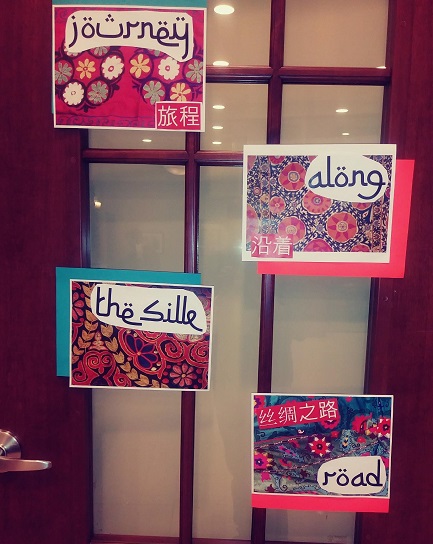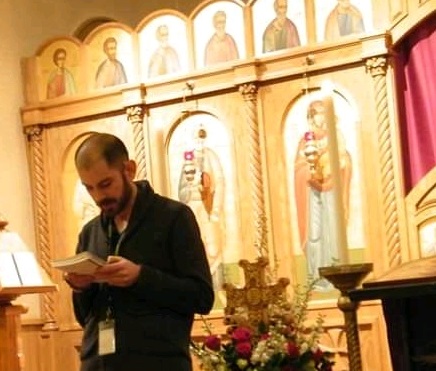
Marhabaan! My name is Andrew Milewski. I am a first-year master’s student in the social philosophy program as well as a Jesuit scholastic studying for future ordination. I am very happy to be associated with the Arabic language and culture program here at Loyola University Chicago. I grew up in a traditionally Arabic speaking Catholic Church; however, there was very little spoken Arabic during my childhood, because many of our parish members were third or fourth generation immigrants from Lebanon and its neighboring countries. We may have chanted the occasional yaa rabb ‘riham, which means “Lord, have mercy.” That was about it.
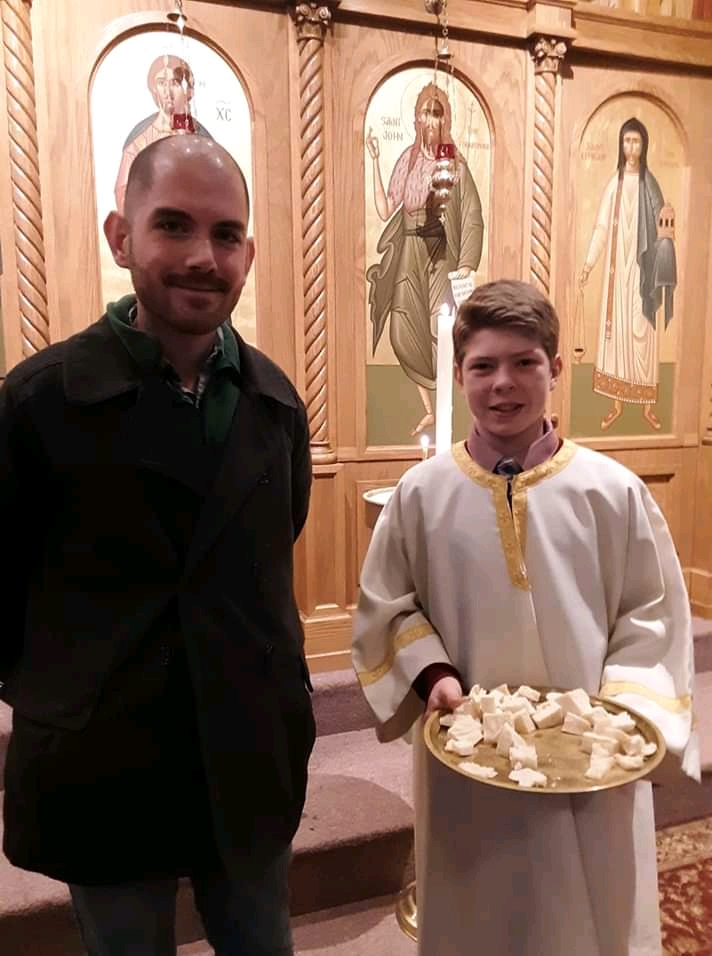
My more recent desire to learn Arabic began when I became a Jesuit and entered the novitiate, the initial two years of formation where future Jesuit priests engage in intense prayer and community engagement. I spent the spring of 2019 in Weston, Massachusetts outside of Boston, where I helped take care of retired Jesuits for a few months. Many of the older Jesuits from Boston had spent part of their life in Baghdad, working at Baghdad College or Al-Hikma University before they were eventually closed by the Iraqi government. While in Weston, I got to know Fr. Steve Bonian, S.J. who graduated from Baghdad College in 1968, joined the Jesuits, and eventually worked with Christian minorities including the Chaldean, Maronite, Coptic and Byzantine communities both in the United States and in the Middle East. I have fond memories of driving Fr. Steve and the other “Bagh-daddies” to prayer services at Arabic speaking churches. In the car rides, Fr. Steve would begin teaching me phrases such as shuu lunak which means “what’s your color?” but that he explained was a playful way to ask “How are you?”
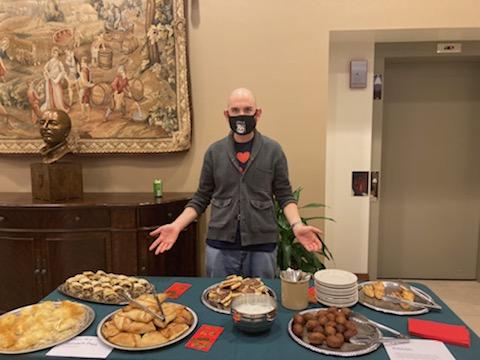
My hope is to learn Arabic in order to work with my own Melkite Catholic community in the United States which has recently grown due to immigrants from Syria and Lebanon. Of course, I would love to travel to the Arabic speaking world. However, I am also able to attend Arabic prayer services right here in the suburbs of Chicago. I am also saddened by the conflicts between our religious communities, especially between Muslims and Christians. It is my hope that my additional classes in the Arabic languages and cultures program will make me more knowledgeable and better equipped to respond to the antagonism between these various communities. Recently, I attended a virtual discussion of the film American Muslim, which was hosted by the American Islamic College, a school right here in Chicago. Over the January term, I was also able to take a course on Islamic History through Loyola University Chicago. That course made me aware of how ignorant I was of this other Islamic tradition that had existed side-by-side with my own families for centuries. My wish is that through dialogue, relationship, and maybe a big dinner of kibbeh and tabbouleh, we can come together and meet the multitude of challenges facing us today.
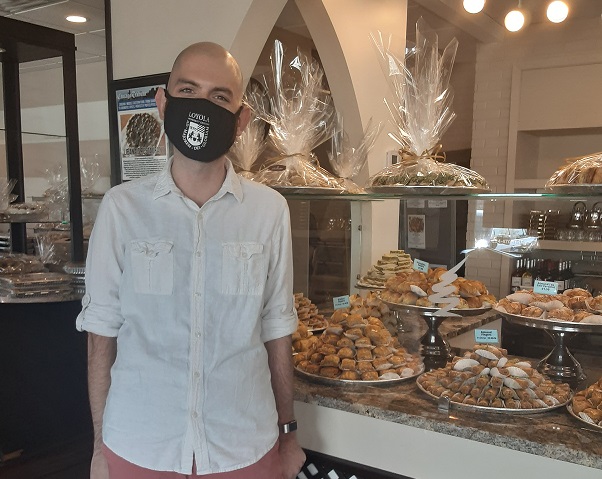
When I was in Weston, I watched W Halla’ La Wayn, meaning Where Do We Go Now?. It is a film by the Lebanese actress, director and activist Nadine Labaki. The film is about the story of a remote Lebanese village inhabited by both Muslims and Christians. As civil strife engulfs the country, the women in the village try, by various means and with varying success, to keep their men in the dark, sabotaging the village radio, then destroying the village TV. The village is slowly drawn into greater violence. However, the women continue to get along beautifully and conspire together to keep their men from fighting, even hiring Ukrainian dancers to entertain their men. Nadine Labaki has become an inspiration for me. I love this film. I love the social commentary and the conversation between religion, gender, and society that all her films touch. I would recommend W Halla’ La Wayn, Sukkar Banat, or Kafarnaum, her 2018 film which highlights the issues of poverty in Beirut. Recently, as I rewatched Kafarnaum, I realized how much my Arabic has improved from these two semesters of study. I look forward to the time when I am able to own prayer more fluently in Arabic; they will be prayers for the stability of peace and the growth of mutual affection between all of us of different languages and cultures.
